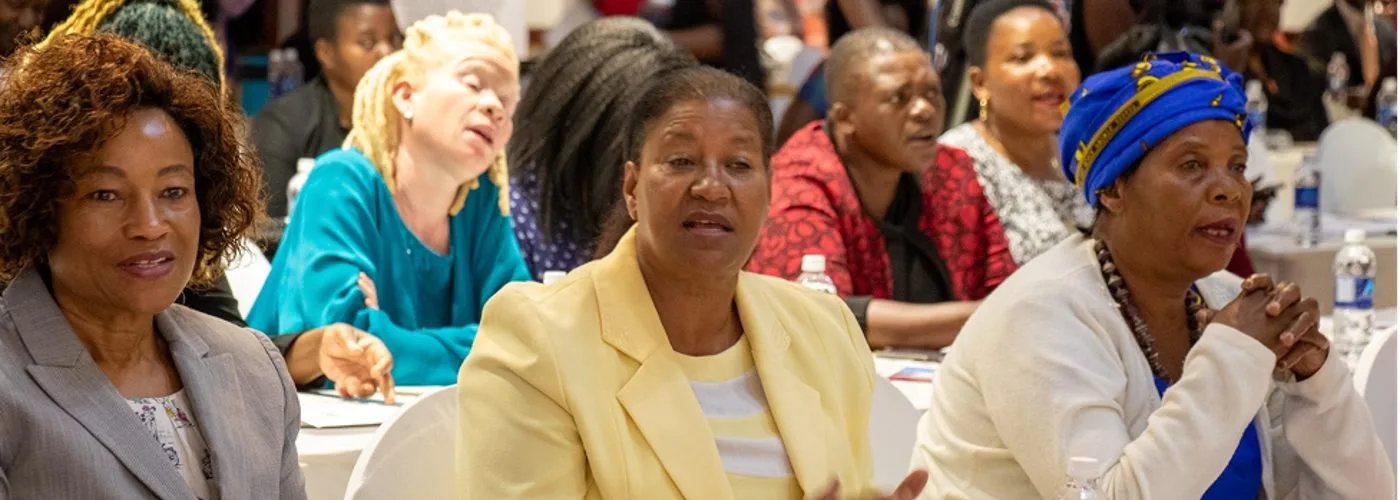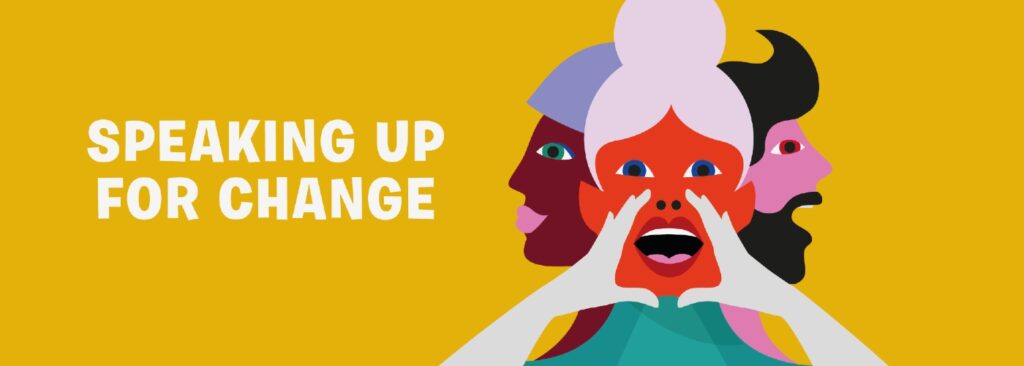By Tambudzai Madzimure, Hivos Southern Africa Program Manager, and Lizwe Chitanganya, Hivos Southern Africa Communications Officer
Hivos in Southern Africa has a long track record of supporting women’s leadership in Zimbabwe, from our Women Empowered for Leadership program, through She Leads, and now the current programs under our Women Empowerment initiative. The aim: to ensure women have equal opportunities and the capacity to fully participate in political life and decision-making processes.
With Zimbabwe’s Harmonized Elections set for August 23, it is sad to see what a missed opportunity the electoral period has been for promoting women’s leadership. Eleven candidates were confirmed by the nomination court** as presidential nominees – none of them women! A huge red flag. In the 2018 elections, there were four women candidates vying for the presidency.
The Maputo Protocol
On July 11, 2023, we celebrate 20 years of the Maputo Protocol – a groundbreaking and comprehensive legal instrument for advancing the status of women and upholding their rights on the African continent. Zimbabwe was one of the first countries to sign the protocol in November 2003, but only completed the ratification in September 2008. For more on the protocol, read here.
A step behind for Zimbabwe
For Zimbabwe, the 20th anniversary celebrations of the Maputo Protocol have been marred by the loss of a number of gains towards gender equality. These include backsliding on sexual and reproductive health rights (SRHR), rising cases of illegal child marriages left unprosecuted, and cases of violence against women and girls from previous elections that are still unresolved. Some of these victims live with the trauma of seeing their attackers every day as they live in the same communities.
Zimbabwe does have legislative and legal instruments supportive of women’s rights and gender equality. The Constitution recognizes equal rights between men and women and the need for 50/50 representation in leadership and decision making. However, the results announced by the Zimbabwe Electoral Commission following the nomination court sitting on June 21 paint a dismal picture of women’s participation in the 2023 elections.
Reversal of electoral progress
Apart from the presidential candidates we mentioned above, only 11% (70/637) of women made it through the nomination court for the National Assembly – a decrease from the 14.4% (237/1648) in 2018’s elections. Most disappointing for gender equality activists is the lack of will to sponsor women candidates shown by the political parties contesting the Harmonized Elections this August.
And yet, women rights organizations and activists lobbied political parties, governments and Parliament intensely for electoral reforms in support of sections 17, 56 and 81 of the Constitution on women’s representation. Civil society organizations and their funding partners also made large investments to support and train women to run campaigns and hold political office.
A commitment not met
In February 2023, women’s rights organizations convened a Multi-Party Dialogue on Women’s Political Participation with the three main parties in Parliament – ZANU-PF, CCC and MDC-T – and parties in the Political Actors Dialogue (POLAD). All the parties received a Charter on women’s demands to political parties and Government.
But despite their commitments to submit gender-balanced party nomination lists to the Zimbabwe Electoral Commission, the poor outcomes for women in this year’s primaries and candidate selections have made a mockery of these high-level engagements.
Especially in the face of rising anti-rights/anti-gender movements, the 20th anniversary of the Maputo Protocol should make feminist and women’s movements realize we need new, more effective strategies to reclaim the ground lost and push for real implementation of the protocol.
(** The purpose of the nomination courts is to confirm candidates who qualify to stand for the Presidential, National Assembly and Local Authority vacancies.)




